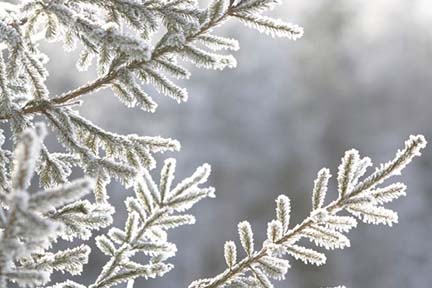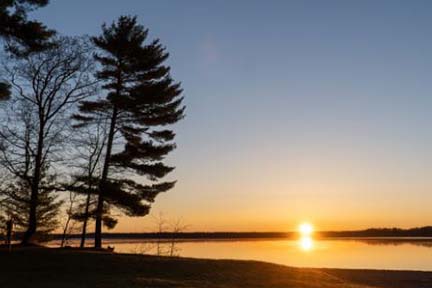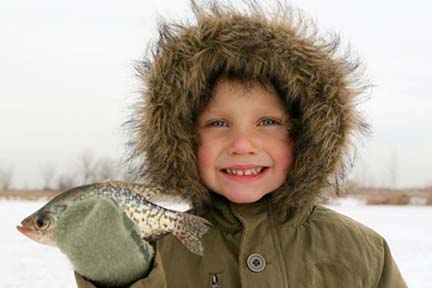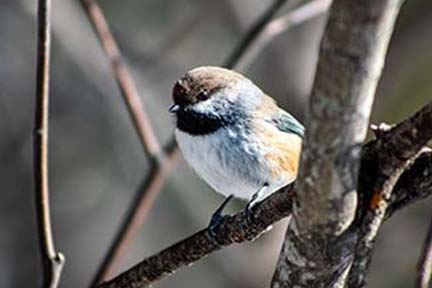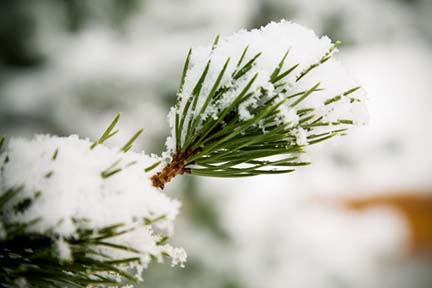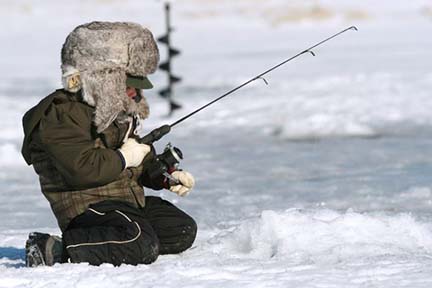| Here are a few of this week’s stories from the Michigan Department of Natural Resources:
See other news releases, Showcasing the DNR stories, photos and other resources at Michigan.gov/DNRPressRoom.
PHOTO FOLDER: Larger, higher-res versions of many of the images used in this email are available in this folder.
 “I’m William Kusey, Sr. I’m 94 years old, and I’m a hunter.” “I’m William Kusey, Sr. I’m 94 years old, and I’m a hunter.”
So starts a new video from the DNR, capturing the words, wisdom and charm of a longtime Michigan hunter who hasn’t missed a firearm deer season opener in 80 years.
Kusey got his first buck at age 14 while hunting with his dad on opening day, a heart-pounding experience that he said has never faded.
“Even at my age,” he laughed, “my heart beats when I see a buck!”
Kusey’s recollections are part of the DNR’s Experiencing Michigan’s Outdoors video series, quick yet revealing looks at hunting, fishing and other outdoor activities through inspiring, personal stories.
If not for his brothers’ mentoring, Kusey said hunting might not be a part of his story. It was their encouragement that sparked a tradition that has grown to include deer and bear hunts – Kesey got his first bear in 1995, west of Copper Harbor, and followed that up with bear No. 2 in 2000, on the other side of Copper Harbor.
“To me, deer hunting was putting food on the table. I’ve hunted all my life, and I’ve really enjoyed every day of it,” he said. “There’s no better place in the world than to hunt in Michigan.”
Veteran hunters like Kusey are an important part of our state’s hunting heritage. Visit Michigan.gov/Hunting to learn about season/species opportunities, as well as simple ways – through mentoring and safety instruction – to share your knowledge and expertise with those just starting out.
If you’ve got ideas about other stories we can tell through video, email Brad Parsons at [email protected]. For questions about hunting opportunities and mentoring, email [email protected]. |
 February is filled with ways to make the most of winter and enjoy Michigan’s natural and cultural resources. Keep in mind that some programs are weather-dependent, and whenever you’re on or near water, use extreme caution around ice. February is filled with ways to make the most of winter and enjoy Michigan’s natural and cultural resources. Keep in mind that some programs are weather-dependent, and whenever you’re on or near water, use extreme caution around ice.
Hike and ski
Several state parks will host guided hikes – many with snowshoes, some by lantern light – and cross-country skiing events. See the DNR events calendar for dates, locations and other details.
Find some relaxation in Michigan’s northern woods with the Cross-Country Skiing and Snowshoe Getaway at the Ralph A. MacMullan Conference Center in Roscommon, taking place Feb. 2-4 and Feb. 9-11. Perfect for couples, friends or families, the all-inclusive weekend includes cabin-style lodging, meals, hot cocoa, snowshoe rentals and easy access to outdoor adventure and miles of evergreen-lined trails.
Ride and fish
We recognize that snow conditions may determine your ability to pull out the sleds, but when winter weather truly returns, a full weekend of free snowmobiling Feb. 9-11 is a great way to ignite (or reignite) your love of winter trail riding! Grab your friends and ride 6,000-plus miles of DNR-designated snowmobile trails, public roads and public lands (where authorized). You legally can ride all weekend long without the regular requirement of a snowmobile registration or trail permit!
During the winter Free Fishing Weekend, Feb. 17-18, enjoy fishing on inland and Great Lakes waters for free, with all license fees waived both days. All fishing regulations will still apply. It’s also a good time to visit state parks and boating access sites, as a Recreation Passport isn’t required for entry during Free Fishing Weekend. As always, consult Michigan.gov/IceSafety before any on-ice activities.
Learn to ice fish from the pros with Hard Water School at the Carl T. Johnson Hunting and Fishing Center in Cadillac, part of the DNR Outdoor Skills Academy. The Feb. 17-18 class will cover everything you need to know to get started, with a focus on techniques for panfish, walleye and pike. The advanced class Feb. 2-4 will dive deeper into specific ice-fishing topics. If the weather doesn’t cooperate to offer the on-ice portion of the class, things may move indoors for a fish fry (if there are enough students).
Birds and blooms
|
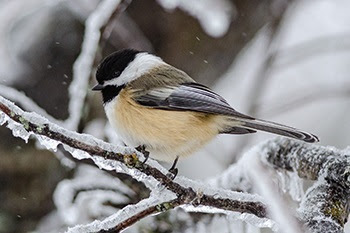 If you’re in the Detroit area, check out the Outdoor Adventure Center event calendar for a variety of fun and educational programs for all ages, from kids to seniors, both indoors and outdoors. Don’t miss the Feb. 11 Birding Expo, where exhibitors from various local organizations will help new birders get started with this healthy, fun hobby. If you’re in the Detroit area, check out the Outdoor Adventure Center event calendar for a variety of fun and educational programs for all ages, from kids to seniors, both indoors and outdoors. Don’t miss the Feb. 11 Birding Expo, where exhibitors from various local organizations will help new birders get started with this healthy, fun hobby.
Celebrate winter Birds and Blooms Feb. 17 with activities for the whole family at Wolf Lake State Fish Hatchery Visitor Center in Mattawan. Participate in the Great Backyard Bird Count bird walk, make pinecone bird feeders, find out how native plants benefit birds, and enjoy hot cocoa, cookies and more.
For a full list of DNR events, see Michigan.gov/DNRCalendar or find ideas to plan your own cold-weather adventure at Michigan.gov/WinterFun. |
If you’d like to get involved in the work the DNR does, read on for ways to help next month! For more opportunities to lend a hand and provide input, visit Michigan.gov/DNRVolunteers.
State park stewardship
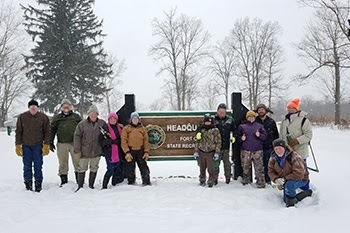 Several state parks in southern Michigan will host stewardship workdays, where volunteers are needed to help restore natural areas by removing invasive plants that threaten high-quality ecosystems. Workdays will take place: Several state parks in southern Michigan will host stewardship workdays, where volunteers are needed to help restore natural areas by removing invasive plants that threaten high-quality ecosystems. Workdays will take place:
- 10 a.m. to noon Saturday, Feb. 3, at Warren Dunes State Park (Berrien County).
- 10 a.m. to 1 p.m. Saturday, Feb. 3, at Waterloo Recreation Area (Jackson County).
- 10 a.m. to 12:30 p.m. Sunday, Feb. 4, at Muskegon State Park (Muskegon County).
- 10 a.m. to 1 p.m. Sunday, Feb. 4, at Pinckney Recreation Area (Washtenaw County).
- 9 a.m. to noon Saturday, Feb. 10, at Bald Mountain Recreation Area (Oakland County).
- 9 a.m. to noon Saturday Feb. 10, at Fort Custer Recreation Area (Kalamazoo County).
- 10 a.m. to 1 p.m. Sunday, Feb. 11, at Island Lake Recreation Area (Livingston County).
- 10 a.m. to 12:30 p.m. Sunday, Feb. 11, at Saugatuck Dunes State Park (Allegan County).
- 9 a.m. to 1 p.m. Saturday, Feb. 17, at Highland Recreation Area (Oakland County).
- 10 a.m. to noon Saturday, Feb. 24, at Hoffmaster State Park (Muskegon County).
- 10 a.m. to 12:30 p.m. Sunday, Feb. 25, at Yankee Springs Recreation Area (Barry County).
More details about each workday and how to register can be found on the DNR volunteer events calendar.
Campground and harbor hosts
If you love staying overnight in Michigan state parks and harbors, consider serving as a volunteer campground or harbor host – we’re currently accepting applications at many locations. Volunteer hosts help answer visitor questions, plan activities and help with light maintenance duties. In exchange, campsite and slip fees are waived. The total commitment is about 30 hours per week.
On the Ground habitat improvement
|
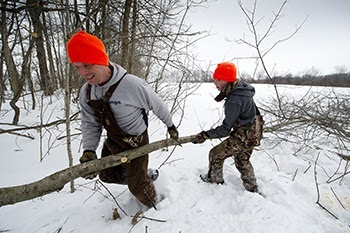 Join On the Ground, Michigan United Conservation Clubs’ volunteer public-land wildlife habitat improvement program in partnership with the DNR, for upcoming projects. Gear, lunch, water and volunteer gifts will be provided. Join On the Ground, Michigan United Conservation Clubs’ volunteer public-land wildlife habitat improvement program in partnership with the DNR, for upcoming projects. Gear, lunch, water and volunteer gifts will be provided.
Help create habitat for small mammals and game birds 9 a.m. to 1 p.m. Saturday, Feb. 3, at the Bellevue Conservation Club in Eaton County. Take part in efforts to clean out and maintain current wood duck nest boxes and install new nest boxes 9:30 a.m. to 12:30 p.m. Saturday, Feb. 17 at Maple River State Game Area in Gratiot County. Build brush piles for woodcock 1:30 to 5 p.m. Friday, Feb. 23, at Port Huron State Game Area in St. Clair County.
Great Backyard Bird Count
You can help scientists better understand and protect birds around the world, while spending time birdwatching in your favorite places, by taking part in the global Great Backyard Bird Count, Feb. 16-19. Count birds in your backyard, a local park or wherever you spot them, and submit your observations online. |
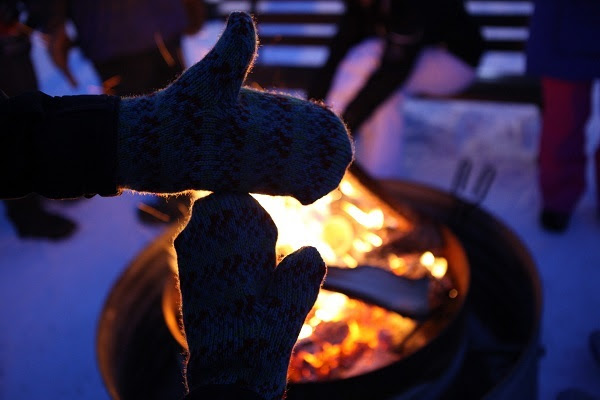 See more pictures by Michigan state parks photo ambassadors at Instagram.com/MiStateParks. For more on the program, call Stephanie Yancer at 989-274-6182. (This photo is by Jamie Ball, for the Michigan DNR, at Tahquamenon Falls State Park in Michigan’s eastern Upper Peninsula.) See more pictures by Michigan state parks photo ambassadors at Instagram.com/MiStateParks. For more on the program, call Stephanie Yancer at 989-274-6182. (This photo is by Jamie Ball, for the Michigan DNR, at Tahquamenon Falls State Park in Michigan’s eastern Upper Peninsula.)
|
